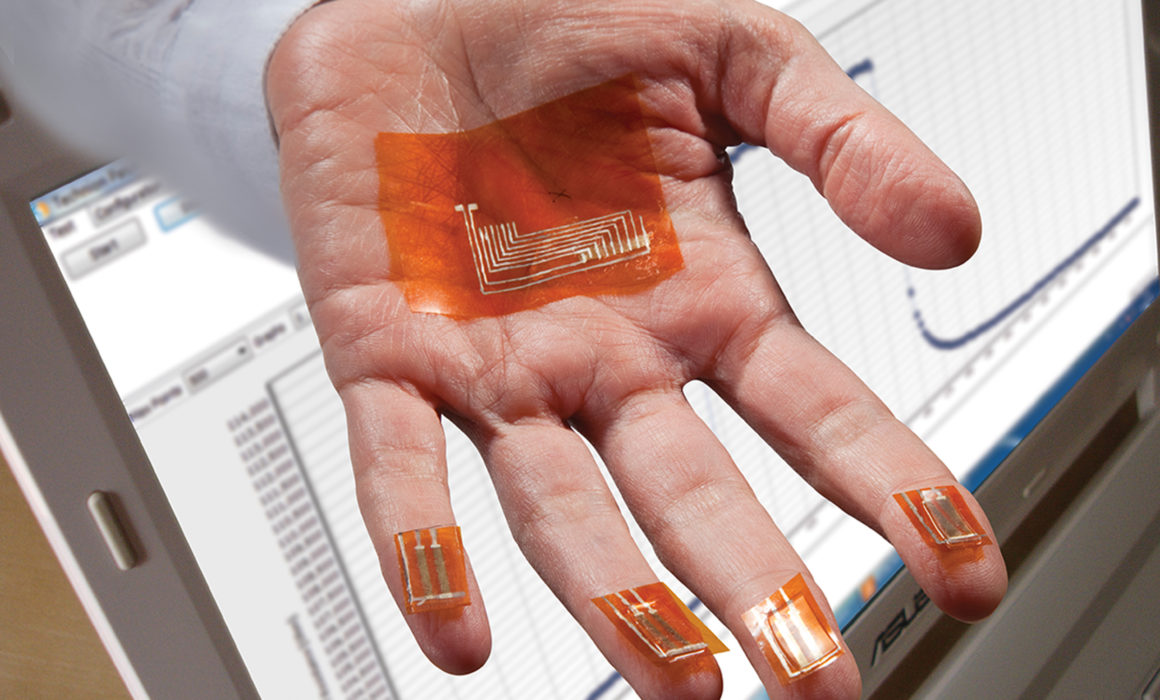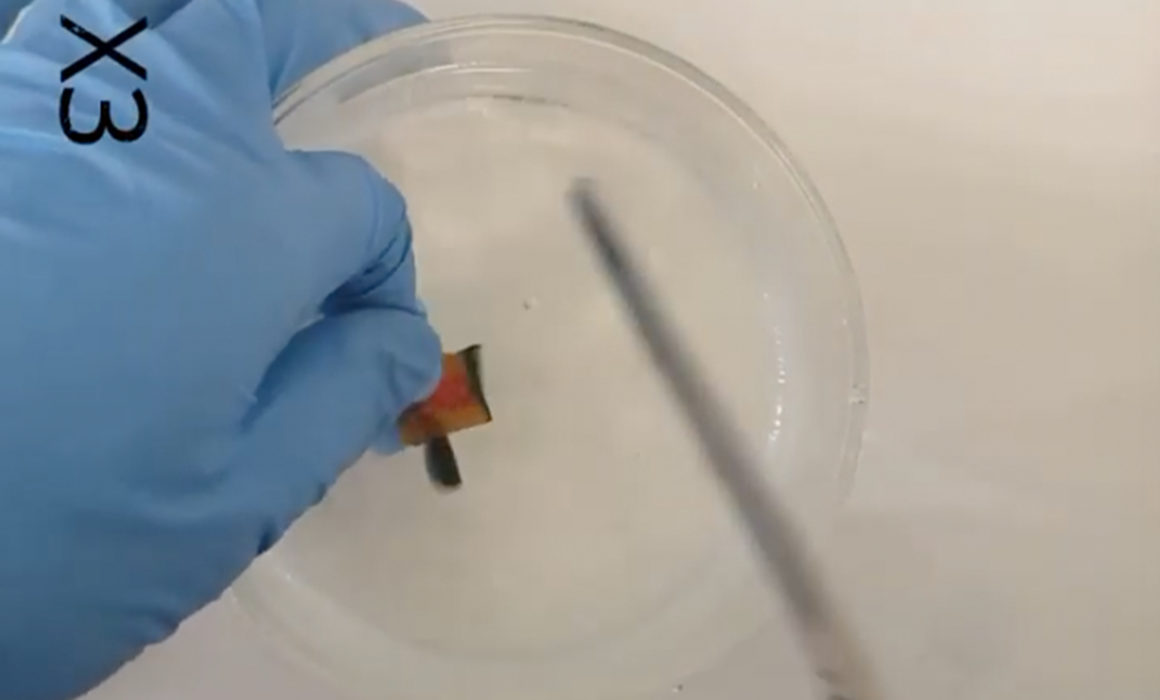Inspired by the remarkable attributes of human skin, a Technion doctoral student is inventing an artificial skin that can heal itself in the event of injury and is sensitive to the environment. The skin could one day be applied to prosthetics such as hands, giving wearers a natural feeling.
During millions of years of evolution, our skin has become both highly sensitive to environmental stimuli and extremely resilient to hostile conditions of nature. Working under Professor Hossam Haick in the Wolfson Faculty of Chemical Engineering, doctoral student Muhammad Khatib first created an elastomer — an elastic and resilient polymer — that is strong, water resistant, stretches without tearing to 1,100% of its original length, and repairs itself, even in water.
He then incorporated advanced electronic sensors that can monitor temperature, pressure, and acidity, transforming the material into artificial or electronic skin. The end product also includes neuron-like components that monitor damage to the system’s electronic parts, and other components that accelerate the self-healing process. The research, he said, “paves the way for new paths and new strategies in the development of skin-inspired electronic sensing platforms that can be integrated into wearable devices and electronic skins for advanced robots and artificial organs.”
Prof. Khatib’s findings were published in both Advanced Materials and Advanced Functional Materials. His research was partially funded in part by the Bill and Melinda Gates Foundation.

